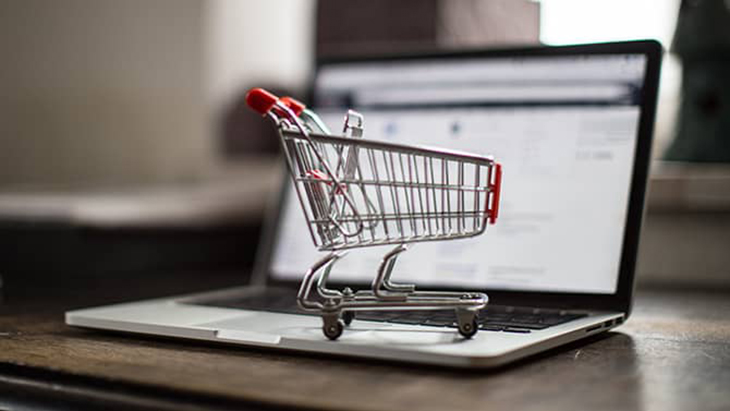
Kaspersky
The amount of online buying has greatly increased in recent years. In order to stay competitive and take a piece of the online market, major e-tailers now give customers additional choices and product selections, while brick and mortar retailers also provide their own online incentives. In addition, many people who formerly bought things from nearby retailers have started buying online as a result of the Covid-19 outbreak. Unfortunately, as online consumer activity has grown, so has cybercrime, costing its unfortunate victims money.
However, just because there are online frauds and cybercrime, doesn’t imply you should avoid purchasing online. If you have an idea about the hazards and take the appropriate steps, you can shop safely online. Napapijri can be considered a reliable choice for online shopping for accessories.
What makes online shopping safe?
Yes, generally speaking, shopping online is safe. It might be risky because of how people use the internet and conduct their online business. And cybercriminals rely on precisely that.
They count on you being unaware of phishing emails and failing to recognize them. They count on you to use predictable security passwords or similar login information across all of your internet accounts. They count on you signing into private accounts over a public WiFi network. In essence, they rely on you, the customer, to disregard cybersecurity best practices.
If you become a victim of cybercriminals, it may cost you much more than just the money in your bank account; it may cost you your identity, which could result in a variety of finance related as well as personal problems.
In reality, cyber threats are less likely to obtain your credit card information online than they are over the phone, over the mail, or at a restaurant, despite the frequent reports of online fraudsters and hackers. Nevertheless, an increased level of caution is necessary for safe internet purchases.
Risks of online shopping
Some of the most common challenges that individual face in online shopping has been mentioned below.
Unreliable stores
Sadly, not all online stores are reliable. Scammers may create fake websites made to resemble well-known, legitimate retailers. They imitate designs, layouts, and trademarks to deceive unwary users into believing they are on a reliable website. They might sell affordable electronics, jewellery, and clothing from well-known brands. Users occasionally receive the goods they have purchased, but they are typical fakes. Users occasionally receive nothing at all.
Data Breaches
When you shop online, you provide retailers with private information like your address, contact information, and bank or credit card information. In the event of a data breach, there is a chance that your information could be made public if hackers get illegal access to a website.
On some websites, data is not encrypted. They are particularly susceptible to attacks if they lack an updated SSL certificate. Customers who share their credit card information and other confidential data with websites whose URLs begin with HTTP rather than HTTPS run the risk of that website not being secure.
Phishing
Scammers do this by sending phoney emails that appear to be sent from any reputable retailer. The emails typically include a link or any attachment that attempts to deceive the recipient into clicking it, which usually results in the installation of malware.
How to find out if the website is safe?
So how can you distinguish between legitimate and fraudulent internet buying sites? Observe the warning indicators listed below:
Contains a privacy statement
A privacy policy describes how the company gathers, utilizes, and keeps consumer sensitive data. While rules and regulations differ from country to country, trustworthy internet shops have to have transparent privacy statements. If they don’t, that can be cause for concern.
Look for a legit address or number
Genuine retailers typically display their phone number and physical location in the upper or lower section. If you’re not sure if an internet store is legitimate, you can find out by pasting their address information on any of the search engines to see if their location can be verified. False sellers will either fail to offer an address or use a fictitious one.
Check the content
On their websites, reputable companies typically make an effort to guarantee that the material and images are of high quality. Poorly written websites with numerous spelling and grammar errors may be a sign that the organization is not what they claim to be. Low-quality photos, a no-returns policy, and inappropriate reviews could also be warning signs.
Safety tips for online shopping
When it comes to buying a wide range of accessories nothing can beat the collection of Napapijri. As an online buyer, you can be careful with the shopping by keeping in mind these factors.
- As with links on tainted search results, hackers sending fishy emails tend to be dependent on you clicking the link in the email to be directed to a retailer’s “website.” These links then take you to copycat websites with creative designs. As a result, when you enter your username and other personal information on the Amazon website, a cybercriminal receives them instead.
- Cybercriminals have created sophisticated tools and software that, on occasion, can defeat your best attempts to conduct safe online transactions. You can use a temporary credit card rather than your normal credit card for online shopping as an added layer of security. Find out if a temporary credit card number can be provided by contacting your credit card provider.
- A significant thing that you can do to protect your personal information while shopping online is to use complex passwords and to use a separate password for each online account. Having to remember a wide variety of passwords, each of which may consist of a different combination of letters, numbers, and symbols, can be a hassle.
- Install a virtual private network (VPN) before doing any online shopping on a public network. Any information sent or received will be encrypted with the help of VPN. What this implies is that no one, not even those who have your Wi-Fi password, can steal it.









































